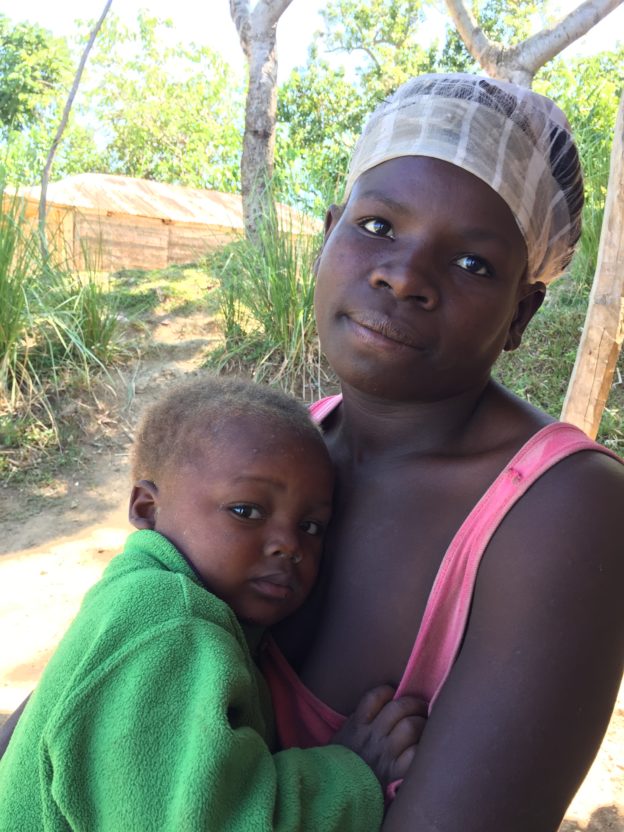I came across Juslène in a corner of Gwo Labou different from the one I have previously found her in, a couple of hundred yards uphill from the house I’m used to. She and her toddler were sitting under a tree in a neighbor’s yard as she helped the older woman shell a small harvest of peanuts. She no longer lives in her sister-in-law’s house. Juslène and her husband have managed to complete enough work on her own home that they felt ready to move into it. All it still lacks is an internal door separating its two rooms.
Juslène is delighted. She says that her sister-in-law’s house was too cold. And it’s true that it sits in a small yard surrounded by large trees. Very little sun gets in. But the more important difference is that the new house is her own. “Ou dòmi lakay ou. Lè w vle leve, ou leve.” That means that you sleep in your own home. You get up when you want to get up. Moving to her own house has given Juslène a new measure of control over her life.
She’s also pleased because her little boy was released from the malnutrition program that the CLM team referred him to. Its medical staff judges that he no longer needs the fortified peanut butter that is the standard treatment in Haiti. And as I speak with Juslène, the boy is noticeably more playful than he has been during my previously visits.
He must be two or three, and he is getting chatty. Not yet pronouncing words clearly, but putting out one short, choppy phrase after another. Juslène repeats most of the phrases, correcting pronunciation and adding missing words. She says that talking with her boy is new for her, but she really enjoys it. She learned it from Titon, her case manager. The importance of talking to newborns and young children is one of the CLM program’s key lessons, and Juslène appears to have learned it well.
Juslène still needs to work hard to further develop her wealth. She still has just two goats, but they are both pregnant. And she has no reliable source of income. She says that she and her husband still depend on working in her neighbors’ fields, but that means income that is both small and irregular. That’s something that she and Titon will have to work on.
But Juslène has changed a lot. Her neighbors wouldn’t talk seriously to her. They looked at her as an “egare.” That means someone who’s empty-headed or lost, out to lunch. Juslène used to spend most of her time looking down when someone tried to speak with her, as though she was afraid to engage in conversation. Now she engages with people comfortably. Titon notices that difference, and so do Juslène’s neighbors.

That’s a great little story and profile Juslene clearly has come far since her day when she was seen as an “egare”. I’m so pleased to hear about her son’s progress and the priority CLM puts on talking to children it’s well known that the physiological development of a young childs brain depends on the amount of stimulus it gets. To Titan and all the people who have played a part in what looks like a future success story for this family “job well done!”